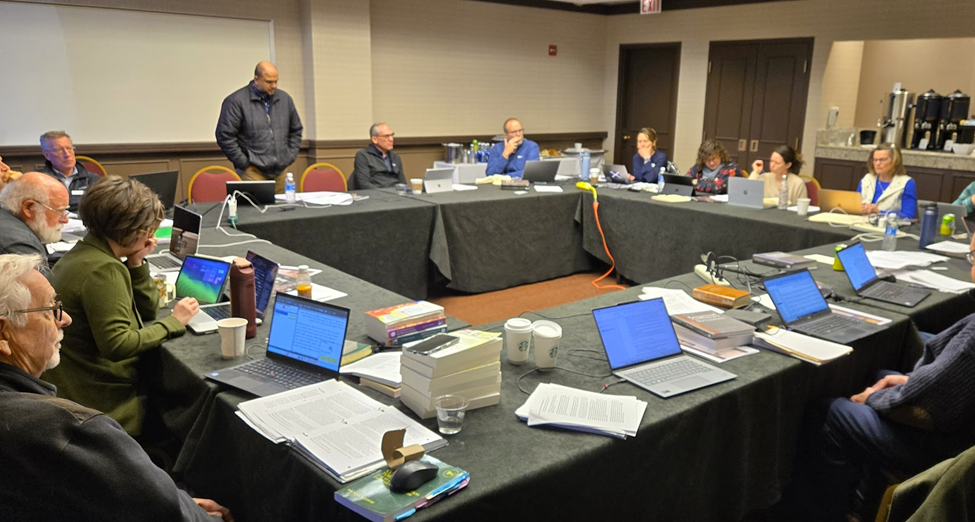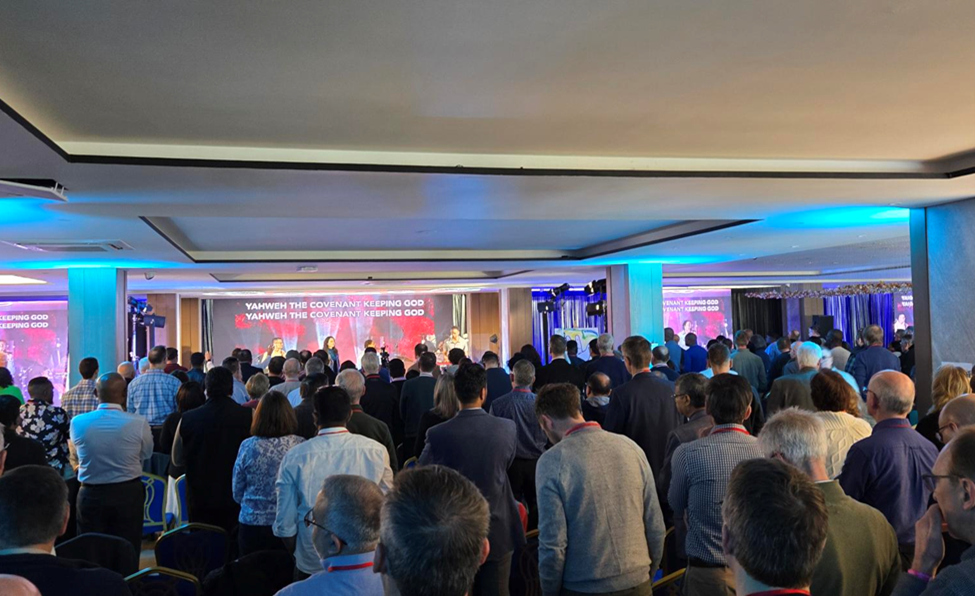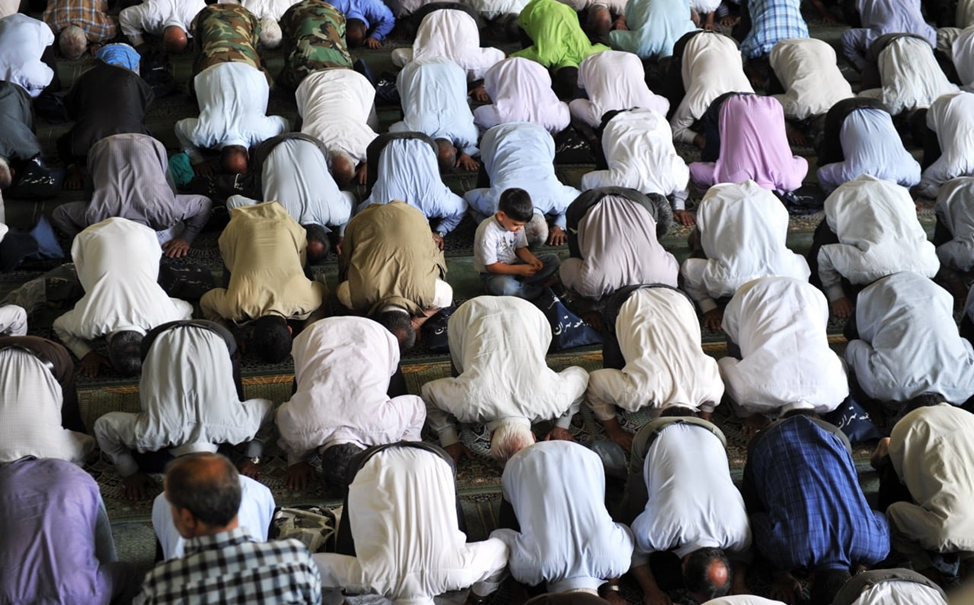
Confession, Fasting, and Generosity
March 4, 2025The surprising link between Ash Wednesday and generosity
Are you ready for Ash Wednesday? (It’s tomorrow, if you didn’t know.)
The practice of marking penitent believers with ashes as an outward sign of repentance just before Lent dates back to at least the ninth century. Lent itself—the 40-day period of fasting and confession of sin leading up to Easter—began even earlier, probably in the fourth century. In 1091, at the Council of Benevento, Pope Urban II formalized the ritual of ash distribution on the first day of Lent, which became known as Ash Wednesday.
Today, hundreds of millions of believers all over the world observe Ash Wednesday. The Catholic Church is the largest ash distributor by far, but many Protestant denominations and independent churches observe the ritual as well. Perhaps yours is one of them.
But Ash Wednesday and Lent aren’t just about fasting, confession, and repentance. Some of the earliest church fathers wrote that fasting should be linked to generosity. John Chrysostom (fourth century) is credited with having written, “Do you fast? Then feed the hungry, give drink to the thirsty, visit the sick.” The church in those days not only expected people to fast and repent before Easter but to use the food and resources that would have been used for personal consumption to bless the poor. By the Middle Ages, Lent was a time when acts of charity were required, not just encouraged.
This week, whether you personally observe Ash Wednesday or not, I encourage you to think of the occasion as an opportunity to commit to personal generosity in the spirit of the ancient tradition of giving sacrificially to care for those who are less fortunate.
If you need some ideas, here are a few. You could give an extra gift to your church this week. You probably can do it online in about two minutes. Or you could find a way to volunteer your time caring for someone who needs help. Befriend an immigrant family. Sponsor a child through Compassion International. Give to World Relief or Evangelical Child & Family Agency or Naomi’s House or any of a hundred other ministry organizations doing good work in our community or abroad. I would be happy to give you a list of Foundation partners working locally and globally to show compassion to the marginalized and vulnerable. Or, if you’d rather see your gift diversified, multiplied, and allocated under the wise care of a committed board, you could even give directly to Tyndale House Foundation, and the THF board will make sure your money goes where the need is greatest.
Ash Wednesday isn’t for everyone (my church doesn’t observe it), but generosity is. So this year, let’s add generosity to the things we celebrate and commemorate on Ash Wednesday.
Here’s what’s happening.

Bible Translation Committee Update
The Bible Translation Committee for the NLT met last Friday and Saturday to go over proposed revisions to Psalms 1–72 and Deuteronomy 1–13. The BTC meets in person as a large group twice a year—a longer meeting in the summer and this shorter meeting in late winter—to discuss and ratify the revisions suggested by the scholars working in smaller groups during the off seasons. I don’t know whether it would ever possible to open up one of these meetings to Tyndale employees, or if part of a meeting could be recorded for wider viewing, but if you ever get a chance to experience what these meetings are like, you should absolutely prioritize it. I’m officially a stylist for the BTC, so I get to vote on the decisions and participate in the discussions, but I’m the least knowledgeable person in the room when it comes to translating the meaning of the original text into modern vernacular, and it’s not particularly close. So it’s an incredible privilege for me to get to listen to the scholars going back and forth on the nuances of Hebrew idioms, or what recent scholarship has to say about translation protocols, or how translated Old Testament text should be sure to preserve Christological content that the original human author included under divine inspiration. It’s like sitting in the most intense Bible study you can imagine for ten straight hours a day. Or getting an entire semester’s worth of seminary-level education jammed into two days. When the updated text is finally released to the public several years from now, I believe the work taking place today will make God’s Word clearer and more accessible than ever to modern readers, all while carefully and accurately—some might say painstakingly—preserving the original meaning. May God use these efforts to bring many more people into a relationship with him through his Word.

Focus on Theological Education
This week, about 700 scholars, professors, seminary administrators, students, organizational leaders, and resource partners are gathering in Durrës, Albania to talk about and plan for the future of theological education across the globe. The conference, hosted by the International Council for Evangelical Theological Education (ICETE), is the largest and most diverse gathering of theological educators in the evangelical world. Tyndale House Foundation gave a grant last year to support this conference, and I’m here in Albania, participating. The reason I’m here (even though I’m not a theological educator) is that I view theological education as vitally strategic for the future of the Global Church. Why? Because the church is growing, especially in the Global South and East, and when church growth outpaces pastoral training and resourcing, you run into problems very quickly. That’s how you have so-called prosperity gospel teaching in some churches, or Christian principles being mixed with practices from traditional religions in some parts of the world, just to name two examples. By bringing people together to strategize ways to produce and grow highly trained pastors and church leaders, ICETE is investing in the future of global Christianity. Many THF partners are here this week, and I’m meeting with as many of them as I can. Please pray that the conference will be a fruitful time of fellowship, worship, planning, discussion, and partnership in this crucial endeavor to advance theological education around the world.

Spotlight on Albania
Since I’m writing this week’s version of the THF Weekly Briefing from Albania, I thought I’d give a quick update on what two THF partners are doing here. Since getting here, I’ve already met with both of them to learn about what’s happening in this very interesting country, which until recently was officially the world’s most atheistic nation. Today, at least half the country (census numbers vary) identifies as Muslim; most of the rest are still atheists, though there’s a growing orthodox community here. Evangelical Christians make up less than one percent of Albania’s 3 million people. Afrim Karochi runs a ministry called Albanian Digital Connection, an evangelistic ministry that reaches out to Albanians and communicates the gospel through social media. Afrim also works to translate and publish helpful Christian books. Zefjan Nicola is the general secretary for the Albanian IFES movement, and he runs the Albanian Leadership Forum. IFES engages in campus ministry and publishing. THF has given multiple grants to Albanian Digital Connection and IFES in Albania in the last couple of years, so our funds are helping make an impact through evangelistic outreach and publishing in a country most Americans probably couldn’t find on a map. Please pray for more and more Albanians to respond to the gospel through the faithful efforts of these partners.

Praying for Muslims during Ramadan
Christians aren’t the only ones celebrating with a time of fasting and generosity this week; the Muslim month of Ramadan began last Friday. There’s a mosque in north Wheaton that I drive past every day on my way to work. On Friday night I happened to be stopping by the office to pick up some books, and when I drove by the mosque, I noticed that the parking lot was completely full. There were cops in the street directing traffic, and people were walking down the sidewalks in large groups from other parking lots nearby. A quick glance through the big windows in the front of the mosque revealed a standing-room-only crowd. Ramadan commemorates the revelation of the Quran to the prophet Muhammad. Observant Muslims fast during the day for the entire month, including from water, and then have an evening meal called Iftar. The month concludes with a celebration called Eid al-Fatr, where Muslims will gather to pray, share a meal, and give to the poor. It’s interesting to me that Ramadan and especially the Eid al-Fatr festival are so closely associated with generosity. One reason for this is a theological principle in Islam that no one should go hungry or be excluded from the joy of the holiday. Muslims are required to pay a tithe, called the Zakat, which is supposed to equal 2.5 percent of their wealth, to help the poor. Fasting during Ramadan cultivates empathy for the poor, and the Quran repeatedly emphasizes that helping the needy is essential to a life of faith. There are a lot of obvious overlaps between the Muslim and Christian views of generosity (among other things). What this means is that there is no shortage of conversational bridges between Islam and Christianity. THF partner TransformIran encourages Christians to be intentional about praying for Muslims during Ramadan, when many are thinking about spiritual things and seeking answers that ultimately they will never find in the Quran. As you pray for Muslims this month, look for opportunities to engage a Muslim in conversation, and ask the Lord to help you gently steer the conversation to Jesus. If you’re looking for a way to start, maybe you can try talking about generosity.
That’s it for this week’s briefing. Please send any questions, comments, and recommendations about fun things to do in Albania to [email protected]. I send out this email resource most weeks primarily for a Tyndale audience, but you should feel free to share it with others who may be interested, inside or outside of Tyndale. Thanks for continuing to pray for and support our partners around the world.
Jeremy Taylor
President | Tyndale House Foundation
The THF Weekly Briefing provides information about significant events happening in the wide universe of Tyndale House Foundation partner organizations as well as an occasional peek behind the scenes of THF’s operations. It is available to anyone at Tyndale who’s interested in learning more about the Foundation side of the organization. Was this email forwarded to you? Contact [email protected] to be added to (or removed from) the distribution list.

